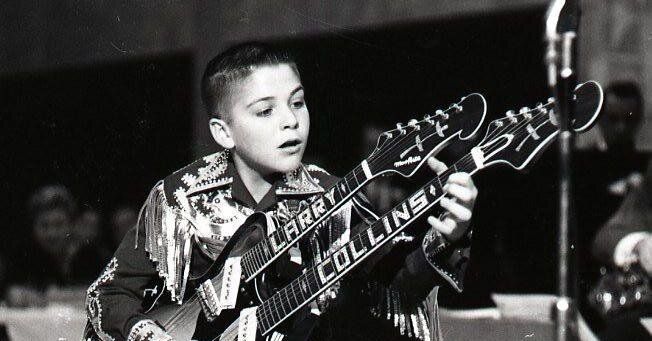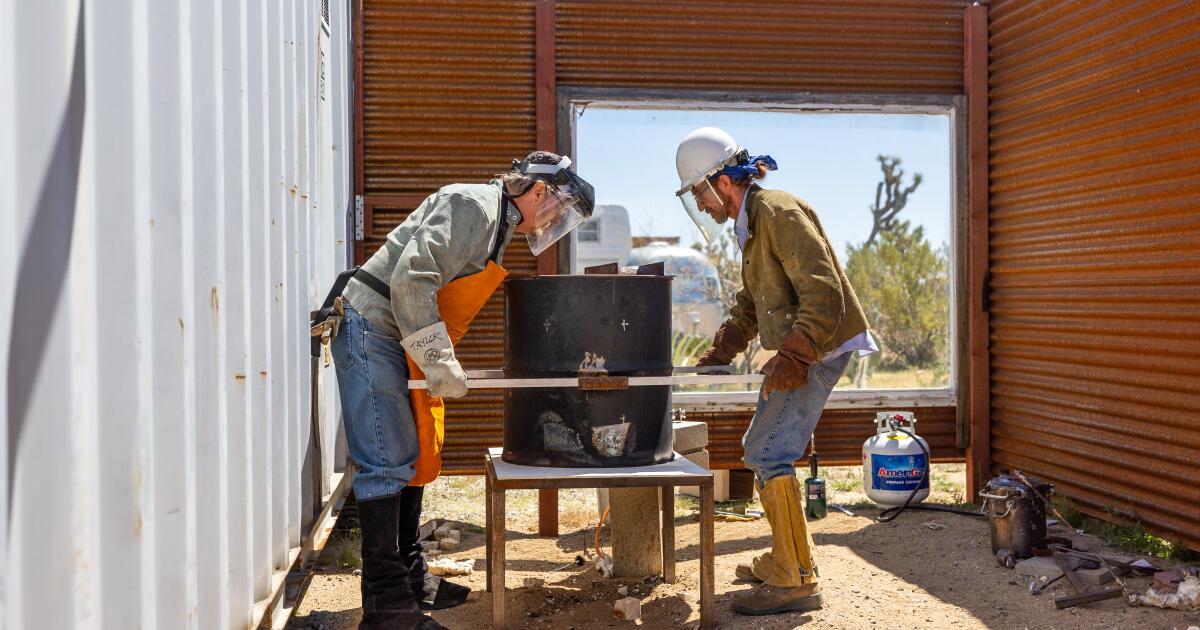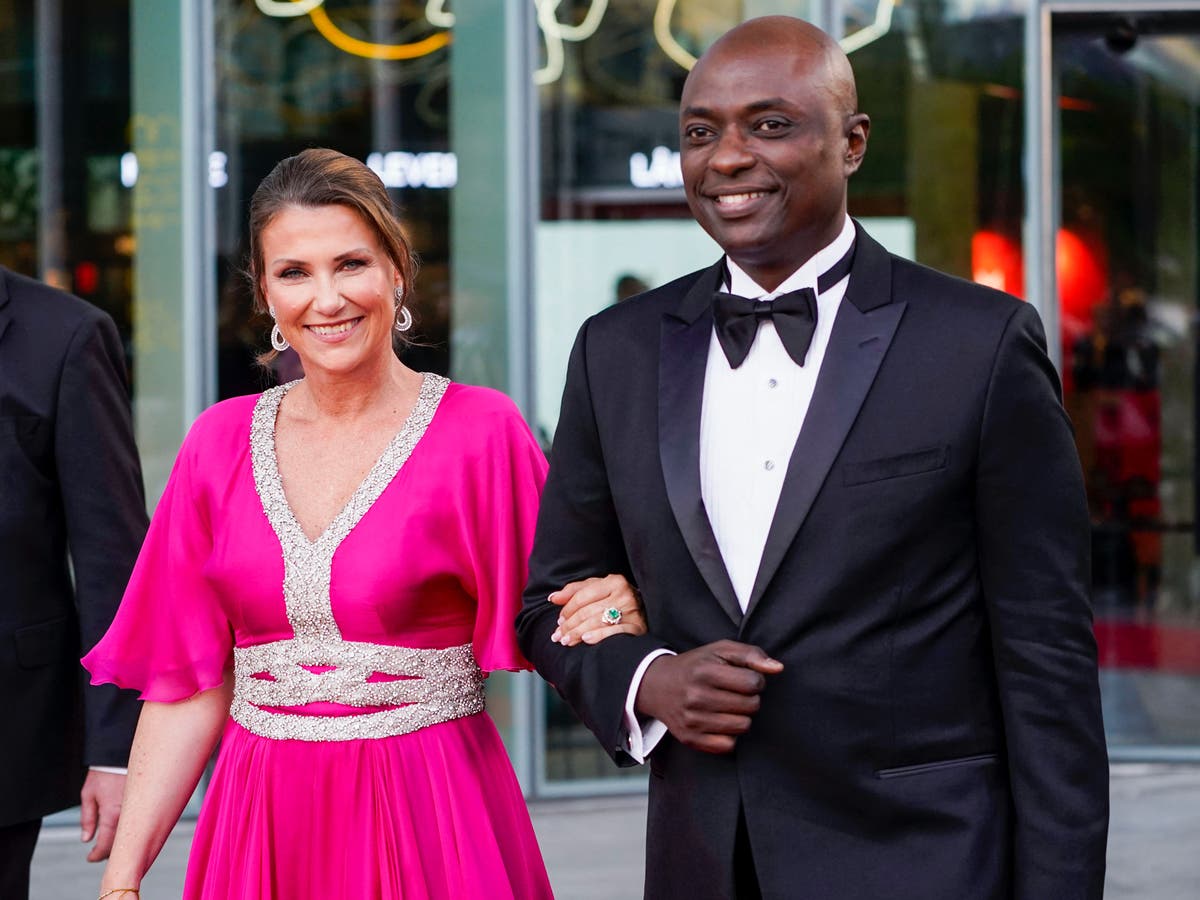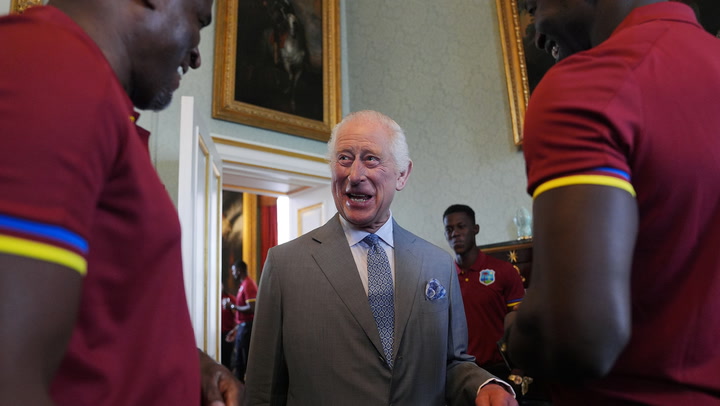Larry Collins, the prodigious child guitarist who worked with his sister Lorrie as the exuberant 1950s rockabilly duo the Collins Kids, died Friday in Santa Clarita, California. He was 79 years old.
His death, in a hospital, was announced by his daughter Larissa Collins, who did not cite the cause.
Although they did not sell millions of records or enjoy widespread radio airplay, Collins and her sister were ideal for the then-emerging medium of television and became bona fide stars of the early years of live country music television. As cast members of “Town Hall Party,” a popular television dance party hosted by cowboy singer Tex Ritter in Los Angeles, they brought an untamed, proto-punk sensibility to the West Coast country and rockabilly scenes of their era.
Larry was just 9 and his sister was 11 when the brothers, dressed in matching Western clothes, became “Town Hall Party” regulars in early 1954. “Two little bouncing packages of T-double-NT!” This is how Mr. Ritter introduced them when they came on stage.
Lorrie stole the hearts of many of the teenagers in the audience. But it was often Larry, as video clips from the era attest, who stole the show: jumping, skipping and waddling across the stage while his sister sang unabashedly about adult situations and emotions.
“They said I came out of my mom with one leg shaking,” Collins said in a 2018 interview for pleasekillme.com, the companion website to a book of the same name about punk music. “I had so much energy that they didn't know what to do with me.”
Their hyperkinetic antics and soaring vocal harmonies enlivened the duo's performances: two-minute bursts of swagger and attitude that gave expression to evocative songs like “Hoy Hoy” and “Hot Rod,” both from 1958.
“I'm only 14, but I'm going to be 15/But I want to be 16, so I can get myself a hot rod,” declared Ms. Collins, all swagger and attitude, as her brother laid down a series of rushed guitar riffs behind her. .
Collins played everything from jagged single-note sequences to runs of reverb-soaked bass strings on his Mosrite double-neck guitar, a gift from his mentor, West Coast guitar virtuoso Joe Maphis. Collins also appeared on “Fire on the Strings,” an album of instrumentals recorded by Maphis (who also played a Mosrite double-neck) for Columbia Records in 1957.
Dick Dale, the man heralded as the “king of surf guitar,” cited Mr. Collins’ staccato delivery as a major influence on his playing and the evolution of surf music.
But Collins' innovations as a guitarist extended beyond surf music and rockabilly. Noting similarities between their playing and that heard on punk recordings by the Sex Pistols and the Ramones, guitarist Deke Dickerson argued that the Collins' 1958 single “Whistle Bait” anticipated punk rock by about two decades.
“'Whistle Bait' was the first rock 'n' roll record that divorced itself from Rhythm and Blues, Country, Jazz or anything else; “It was unlike anything before,” Dickerson wrote in a 2018 profile of Collins on pleasekillme.com.
“Call it pure id, call it free-association rockabilly,” he continued, “but it was a really strange record. It was the first punk-rock album.”
“Rock 'n' roll was what we were doing,” Collins explained in the liner notes to “The Rockin'est,” a 1997 collection of the brothers' recordings from the 1950s. “All the material was high energy. Our approach was always 'Let's do this a little faster.'”
Lawrence Albert Collins was born on October 4, 1944 in Tulsa, Oklahoma, the only child of Lawrence and Hazel Juanita (Robinson) Collins. His father was a rancher and, later, a crane operator. His mother was an amateur singer and mandolin player who cultivated the talent of her children.
Larry and Lorrie's first break came when she won a talent contest hosted by steel guitarist Leon McAuliffe at the Tulsa Ballroom in 1950. McAuliffe also urged the brothers' parents to move from Oklahoma to California to promote careers. their children's musicals.
In February 1954, after moving to Long Beach, Larry and Lorrie auditioned for “Town Hall Party” and made their first appearance on the show the following night.
Two years later they performed as guests on the first television broadcast of the Grand Ole Opry. They also began releasing incendiary rockabilly recordings for Columbia, such as “Hop, Skip and Jump” and “Beetle-Bug-Bop,” but whether they were too country for rock 'n' rolls or too rock for music fans country, none of them reached the Billboard Hot 100.
In 1959 they joined Johnny Cash's traveling revue. Lorrie met and eloped with Cash's manager, Stu Carnall; she gave birth to two sons; and she became primarily a stay-at-home mother. (The marriage ended in divorce.)
The Collins Kids officially called it quits in 1965, after an appearance on the pop music television series “Shindig!” Collins pursued a career as a songwriter and had success as co-writer of “Delta Dawn” (a Helen Reddy recording that became a number one pop hit in 1973) and “Tulsa Turnaround” (1979), a song popularized by Kenny Rogers.
In 1993, Collins and her sister reunited to perform at a rockabilly festival in England. They performed together on and off after that until Ms. Collins' death in 2018.
In addition to his daughter, Mr. Collins is survived by his sister Nickie Collins and two grandchildren. Another sister, Sherry Madden, died in 2020.
As a children's entertainer, Mr. Collins hardly had a normal life, especially when it came to school, which he did not attend regularly, and developing relationships with his peers.
“I practiced a lot, maybe eight hours a day,” he told music historian Colin Escott in an interview for the liner notes of “The Rockin'est.”
“But it was a gift,” he continued. “It was what I was supposed to do. I just can't believe he ever had so much energy. I look at those old videos and say, 'The kid has gone crazy.'”












